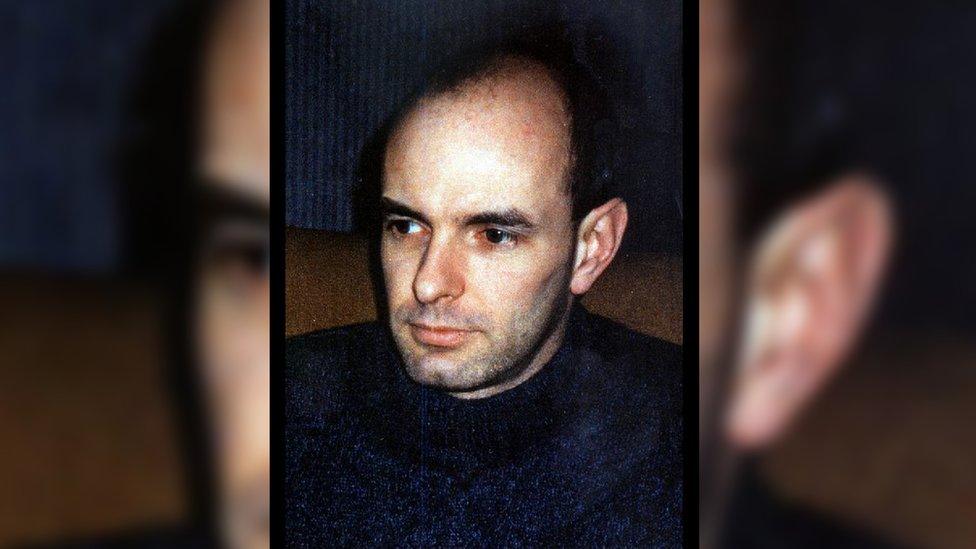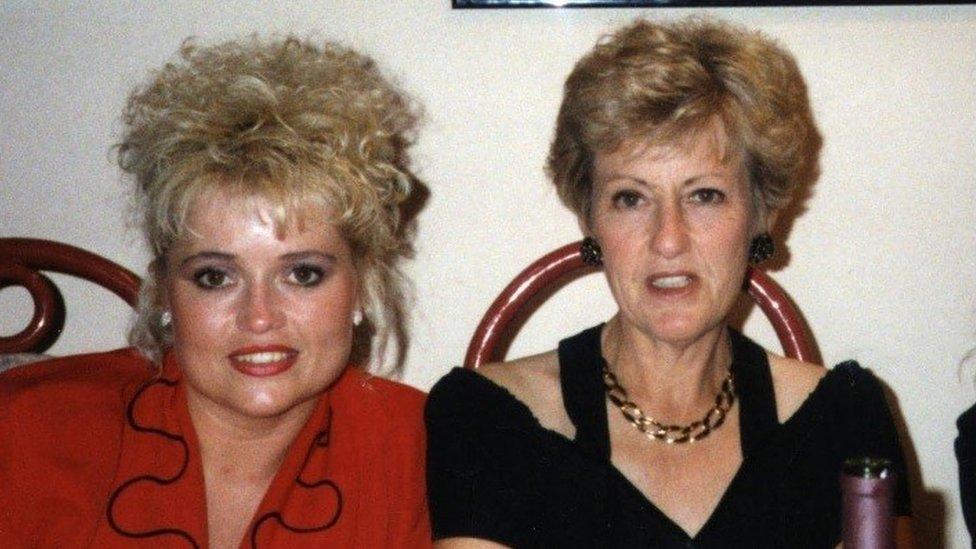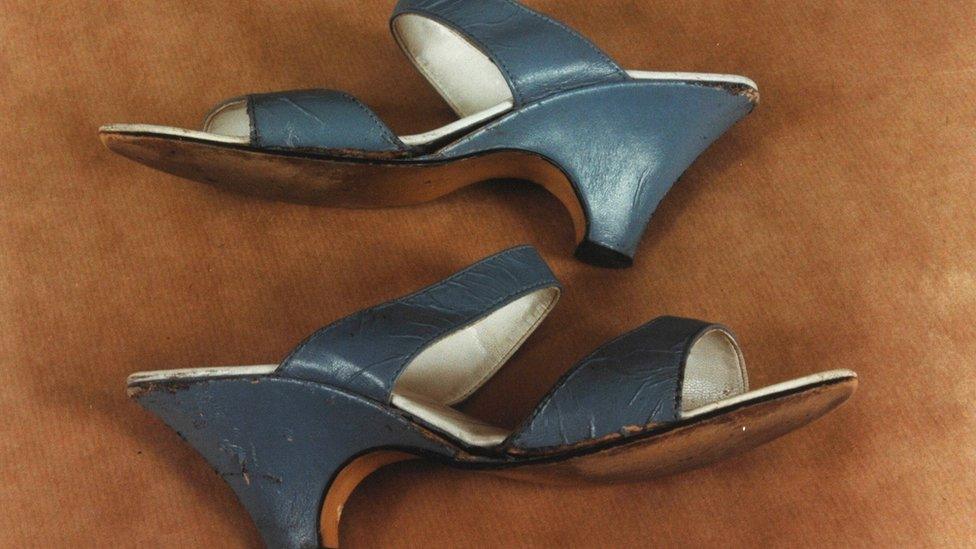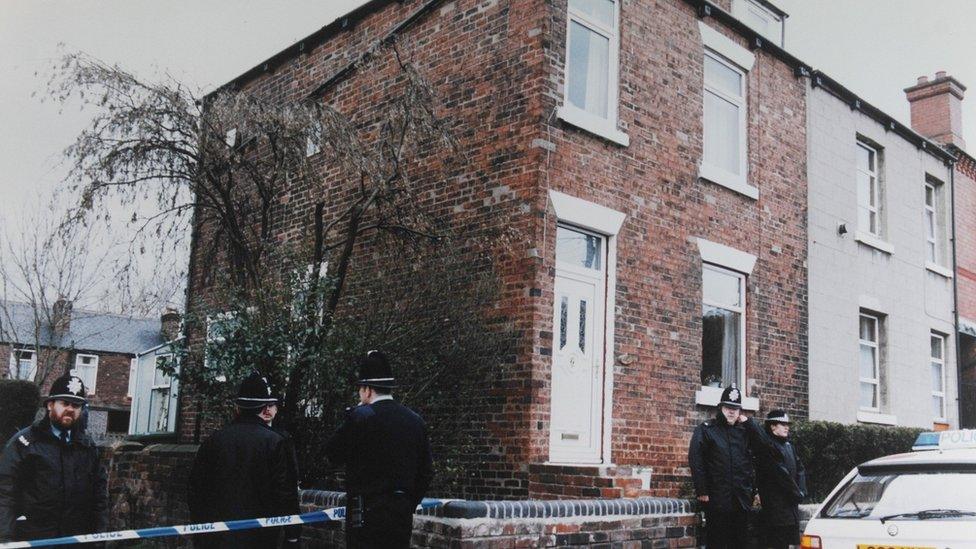Wendy Speakes murder: Daughter fears release of mum's shoe fetish killer
- Published

Christopher Farrow was jailed for life in 2000
The daughter of a woman who was raped and murdered by a man with a shoe fetish fears he could be released ahead of his forthcoming parole hearing.
Christopher Farrow was jailed for life in 2000 for killing Wendy Speakes, 51, in Wakefield in 1994.
In 2020 the Parole Board ruled he was not suitable for release but a fresh review is due to be heard on Friday.
Tracey Millington-Jones said she and her family would be "distraught" if he was "living a free life".

Mrs Speakes' daughter Tracey Millington-Jones said women would be at risk if Farrow was released
Farrow forced his way into Mrs Speakes' home in Balne Lane before tying her up and forcing her to wear a pair of blue mule shoes.
She was then raped and stabbed to death.
Her murder on 15 March, 1994 led to a six-year hunt for Farrow, then aged 39, who was eventually caught after advances in fingerprint technology.
His first parole hearing in 2018 recommended Farrow be moved to an open prison in preparation for eventual release, but he was later returned to a secure prison.
In 2020, he was deemed unsuitable for release and the panel ruled he should be transferred to an open prison.
A report at the time said Farrow "needed to continue addressing problem areas and to develop appropriate skills" and that "he was appropriately located in custody where outstanding levels of risk could be addressed".

Farrow forced Mrs Speakes to wear a pair of blue mule shoes before killing her
Mrs Millington-Jones said if Farrow was released it would bring back the horror of what happened to her mum.
Speaking to the Local Democracy Reporting Service, she said: "Looking over my shoulder knowing he was no longer in prison would affect the life I have managed to build back up since 1994.
"Every sight of a man looking like Farrow would bring it all back to the forefront, affecting everything I do in my day to day life."
She added: "My family would be distraught at the fact he would be living a free life, a life that he cruelly took away from my mum."

Farrow carried out the random killing at Mrs Speakes' home in Balne Lane, Wakefield
Mrs Millington-Jones said she feared if released, Farrow would strike again and that the "local community would be living in terror".
A Parole Board spokesperson said decisions were "solely focused on what risk a prisoner could represent to the public if released and whether that risk is manageable in the community".
They said the panel would examine a "huge range of evidence" including details of the original crime, evidence of behaviour change as well as exploring the impact the crime has had on victims.
They added: "Protecting the public is our number one priority."

Follow BBC Yorkshire on Facebook, external, Twitter, external and Instagram, external. Send your story ideas to yorkslincs.news@bbc.co.uk, external.
Related topics
- Published9 December 2020
